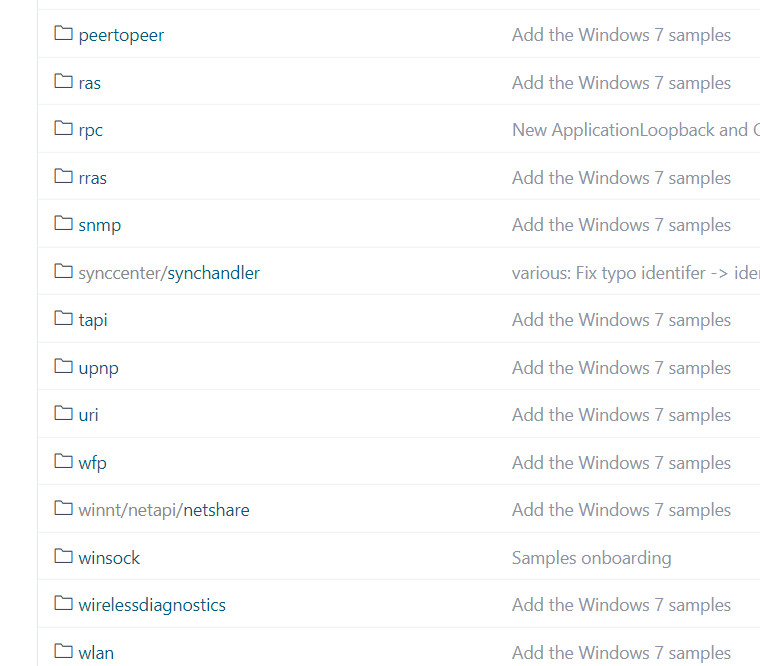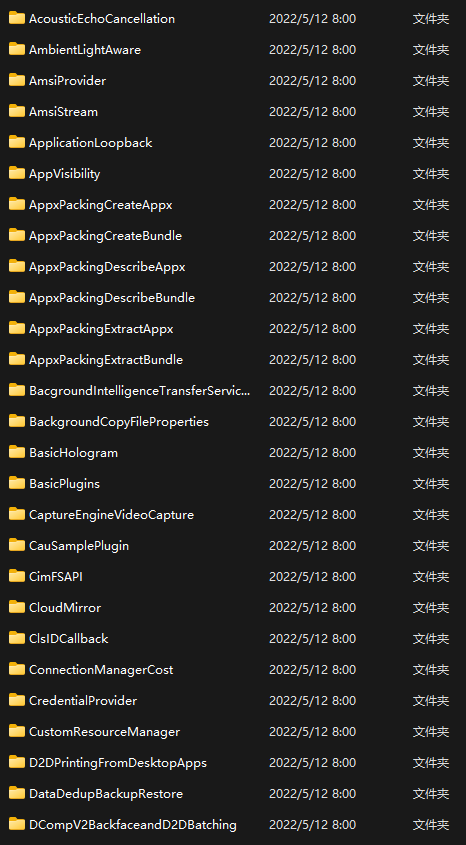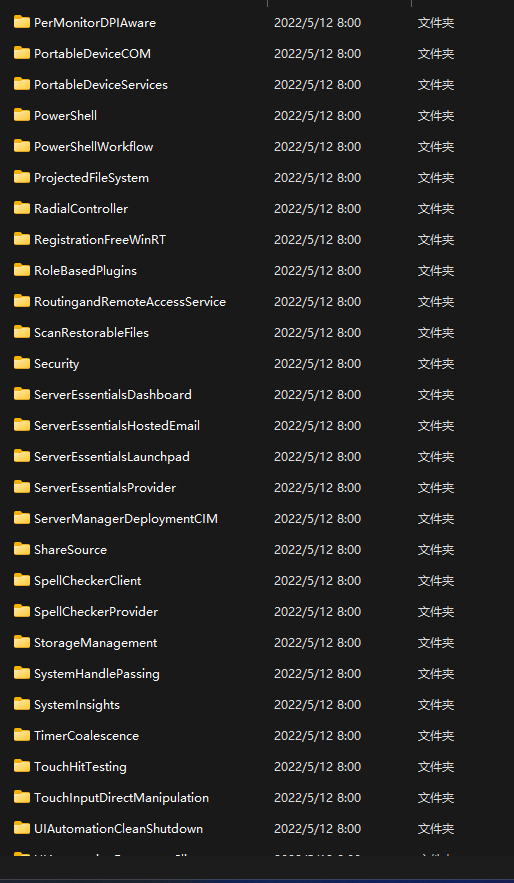windows-classic-samples(c++ windows 编程微软官方范例)
windows-classic-samples
概述
- 这库很全面, 里面有很多 范例, 比如,最近在看IOCP。 这里面就有微软官方给出的范例
- 还有很多: wlan、无线网络诊断等。 官方注释很全。

- 不止网络库,还有其他库, 等待挖掘哦。
一个例子
-
今天查找PostQueuedCompletionStatus的官方例子, 就在github发现了这个宝库

-
下载后,发现里面有很多官方给出的范例, 按照英文字母排序分类


note
- 这里就不放全图了, 可以自行下载。
- 下面的描述来自官方给出的说明
Windows classic samples
This repo contains samples that demonstrate
the API used in Windows classic desktop applications.
Note. You can use Microsoft Visual Studio to search the entire set of source code here to see whether the usage of a particular Windows API is being demonstrated. Clone this repo (or download the ZIP) to your local file system. Then Find in Files in Visual Studio, set Look in to the folder you cloned or downloaded into, and search for an API name. You can install Visual Studio without expense. A Community edition is available—it's free for students, open-source contributors, and individuals.
These samples demonstrate the functionality and programming model
for Windows and Windows Server.
This repo contains Visual Studio solution (SLN) files for each sample,
along with the source files, assets, resources, and metadata
needed to compile and run the sample.
For more info about the programming models, platforms, languages,
and APIs demonstrated in these samples,
check out the documentation on the
Windows Dev Center.
Most of these samples were created
for Windows 7, Windows 8.1 and/or Windows Server 2012 R2
using Visual Studio 2013,
but some were created with earlier versions,
or with specific SKU and other requirements.
In many cases, the samples will also work on later versions than the ones indicated.
If you cannot get a sample to work as expected,
it might have platform, version, or SKU-specific requirements.
If you have any issues with the samples, please provide feedback using the Issues list.
To get a copy of Visual Studio, go to
Visual Studio Downloads.
Other samples:
- Windows Universal Samples (UWP)
- Desktop Bridge to Universal Windows Platform (UWP)
- Code samples browser
This project has adopted the Microsoft Open Source Code of Conduct.
For more information see the Code of Conduct FAQ
or contact opencode@microsoft.com with any additional questions or comments.


